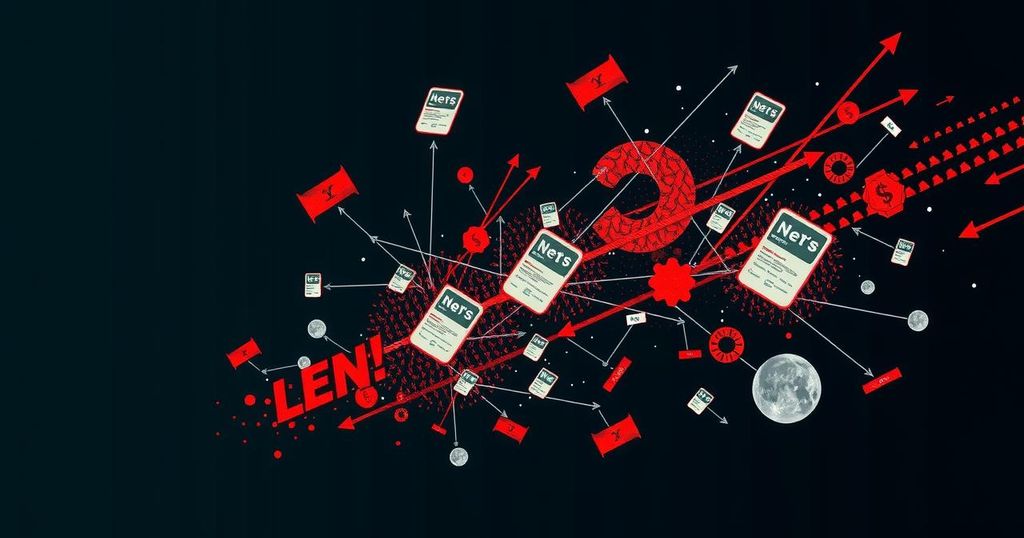The Rising Tide of Disinformation Ahead of the Election: A Threat to American Democracy
As the election nears, disinformation has surged to unprecedented levels, undermining trust in democracy. False claims, including serious allegations against a vice-presidential nominee, have spread rapidly, influenced by foreign adversaries like Russia. The current climate of misinformation poses significant threats to political discourse and electoral integrity, calling for urgent attention to safeguard democratic institutions.
As the upcoming election approaches, the surge in disinformation has reached unprecedented levels, severely undermining the public’s trust in the integrity of American democracy. There is an alarming trend of false claims being disseminated widely across various social media platforms and misinformation outlets, both from domestic and international sources. A notable example includes baseless accusations against the Democratic vice-presidential nominee, who has been wrongfully accused of impropriety, with these claims being propagated by a former deputy sheriff now affiliated with Russian propaganda efforts. A fabricated video related to this accusation gained over five million views on platform X, owned by Elon Musk, who has openly supported the Republican candidate and rehashed discredited election validity claims. Historically, disinformation has been a staple of American presidential campaigns. However, with merely weeks until the election, the volume and impact of current disinformation campaigns dwarf previous occurrences, according to experts and authorities monitoring these activities. The ongoing onslaught has not only muddied the political dialogue surrounding candidates like Mr. Trump and Vice President Kamala Harris but has also eroded foundational trust in the electoral process as a whole. Adversarial nations such as Russia, Iran, and China are exploiting this environment of mistrust, propagating narratives that depict American democracy as flawed and unreliable. These foreign entities have found fertile ground in the division and discord fostered by domestic political figures and media personalities, thereby exacerbating the situation for their strategic gain. Jen Easterly, the director of the Cybersecurity and Infrastructure Security Agency, has noted that while these foreign actors may employ distinct strategies in their influence operations, their overarching objective remains consistent: to undermine American confidence in democratic institutions and sow discord among the electorate.
The current landscape of disinformation in the United States presents a critical challenge as elections draw near. With political polarization intensifying, the spread of inaccurate information poses a significant threat to democratic processes and societal trust. The examination of disinformation tactics employed both by foreign adversaries and domestic actors reveals a strategic focus on creating discord and doubt among the electorate. The evolving role of social media platforms in facilitating this spread exacerbates the issue, placing them at the center of the debate surrounding election integrity and public trust.
In conclusion, as the election day approaches, the proliferation of disinformation represents an acute threat to the fundamental principles of American democracy. The efforts to skew public perception through false narratives and misinformation not only undermine elections but also erode the trust necessary for a functioning democracy. With the engagement of foreign actors and the amplification of divisive rhetoric by influential figures, the need for vigilance and proactive measures to combat these trends has never been more critical.
Original Source: www.nytimes.com




Post Comment